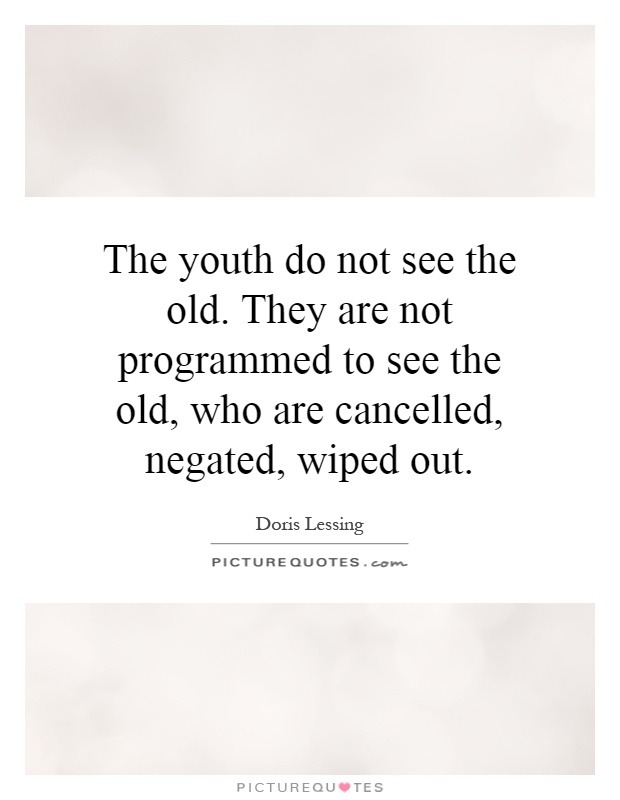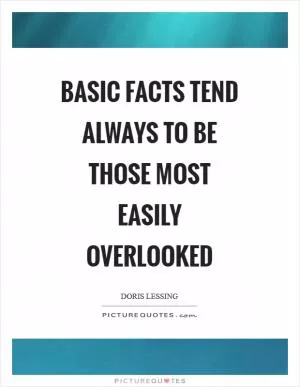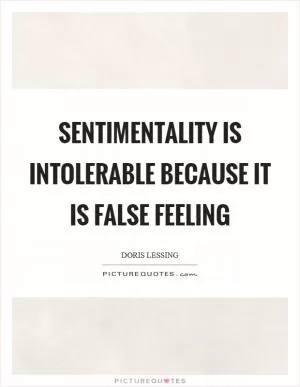The youth do not see the old. They are not programmed to see the old, who are cancelled, negated, wiped out

The youth do not see the old. They are not programmed to see the old, who are cancelled, negated, wiped out
Doris Lessing, a renowned British novelist and essayist, often explored the themes of aging, generational divides, and societal attitudes towards the elderly in her works. In the quote “The youth do not see the old. They are not programmed to see the old, who are cancelled, negated, wiped out,” Lessing captures the harsh reality of how the younger generation often overlooks and disregards the elderly in society.Lessing's observation that the youth are not programmed to see the old speaks to a larger societal issue of ageism. In a culture that values youth and beauty, the elderly are often marginalized and pushed to the sidelines. The media bombards us with images of youthful vitality and perfection, creating an unrealistic standard that the elderly cannot meet. As a result, the elderly are often seen as irrelevant, unimportant, and invisible to the younger generation.
This invisibility of the elderly can have profound consequences on both the individual and society as a whole. The elderly have a wealth of knowledge and experience to offer, yet their voices are often silenced and ignored. By dismissing the elderly, we are missing out on valuable insights and perspectives that could enrich our lives and help us navigate the complexities of the world.
Lessing's assertion that the old are cancelled, negated, and wiped out highlights the dehumanizing effects of ageism. When we fail to see the elderly as individuals with their own unique stories, struggles, and triumphs, we strip them of their humanity. We reduce them to stereotypes and caricatures, denying them the dignity and respect they deserve.












 Friendship Quotes
Friendship Quotes Love Quotes
Love Quotes Life Quotes
Life Quotes Funny Quotes
Funny Quotes Motivational Quotes
Motivational Quotes Inspirational Quotes
Inspirational Quotes